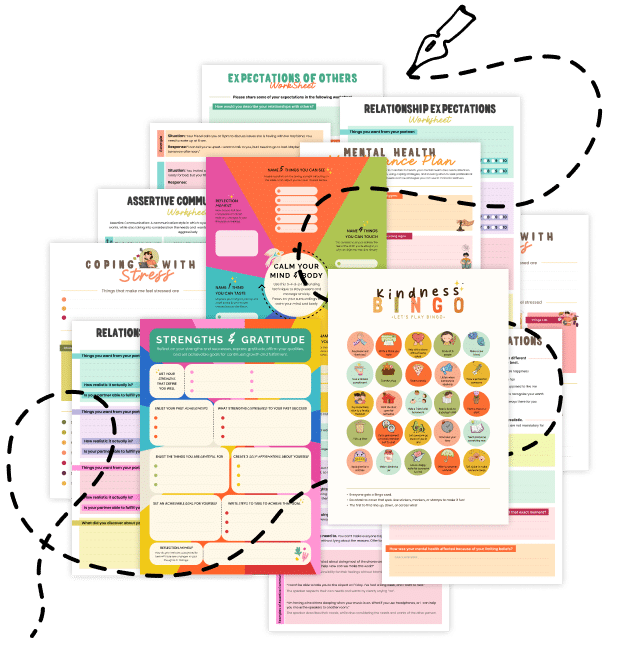20 Things About The Irony of Mental Suppression
Enhance your mental clarity and emotional well-being by exploring these 20 insights on The Irony of Mental Suppression—what it is, why it matters, and how trying to force unwanted thoughts can sometimes make them even stronger. Discover how embracing your thoughts can lead to better mental health, creativity, and overall resilience.
1. What Is Mental Suppression?
Mental suppression is the deliberate effort to push away unwanted thoughts or emotions, often with the aim of avoiding discomfort.
2. The Irony Explained
The irony of mental suppression is that the harder you try to avoid a thought, the more persistent and intrusive it becomes.
3. The “White Bear” Phenomenon
Famous research on the “white bear” effect shows that when you’re told not to think about a white bear, it tends to dominate your mind instead.
4. Cognitive Rebound Effect
Suppressing thoughts can lead to a rebound, where those very thoughts resurface with greater intensity after a period of suppression.
5. Increased Rumination
Efforts to avoid certain thoughts can paradoxically lead to increased rumination, keeping you stuck in a cycle of negative thinking.
6. Emotional Toll
Constant suppression can increase stress and anxiety, as the mental energy spent trying to avoid thoughts adds to your overall cognitive load.
7. Reduced Cognitive Flexibility
When you focus on not thinking about something, you may lose the ability to view situations from alternative, more adaptive perspectives.
8. Impact on Creativity
Suppressing thoughts can block creative processes, as it may inhibit the free flow of ideas and spontaneous connections.
9. Self-Fulfilling Prophecy
By trying to avoid certain thoughts, you might inadvertently confirm their presence in your mind, reinforcing their power over you.
10. The Role of Unconscious Processing
Suppressed thoughts can linger in the unconscious, influencing your behavior and emotions without you being aware of them.
11. A Barrier to Emotional Healing
Avoiding negative emotions can delay processing and healing, making it harder to resolve underlying issues.
12. Interference with Problem-Solving
When you try to suppress a thought, it can interfere with your ability to think clearly and solve problems effectively.
13. Chronic Mental Fatigue
The constant effort to suppress unwanted thoughts can drain your mental energy, leading to fatigue and decreased focus.
14. The Contrast with Acceptance
Studies show that accepting and acknowledging your thoughts—rather than fighting them—often leads to better emotional regulation.
15. Mindfulness as a Remedy
Mindfulness practices encourage you to observe your thoughts without judgment, helping to reduce the rebound effect of suppression.
16. Promoting Cognitive Defusion
Techniques that help you detach from thoughts (cognitive defusion) can be more effective than trying to banish them completely.
17. Impact on Self-Image
Persistent suppression may contribute to a negative self-image, as it can be a sign of self-criticism and internal conflict.
18. Overcoming Habitual Patterns
Recognizing the irony of suppression is the first step toward breaking the cycle and fostering more adaptive thinking patterns.
19. Building Emotional Resilience
Learning to tolerate and accept a range of emotions can build resilience, making you better equipped to handle life’s challenges.
20. Related Topics to Explore
- Mindful Acceptance – Embrace your thoughts without judgment to reduce their power.
- Cognitive Defusion – Learn techniques to detach from unhelpful thoughts.
- Metacognitive Monitoring – Enhance your awareness of how you process and react to your thoughts.
- Self-Talk Restructuring – Transform negative internal dialogues into supportive ones.
- Intrusive Thought Management – Develop strategies to manage unwanted thoughts constructively.
Quick Tips to Combat the Irony of Mental Suppression
- Practice Mindfulness: Instead of fighting unwanted thoughts, observe them calmly and let them pass without judgment.
- Embrace Acceptance: Recognize that all thoughts, even negative ones, are a natural part of your mental landscape.
- Reframe Your Self-Talk: Replace “I must not think about this” with “I acknowledge this thought, but it doesn’t define me.”
- Engage in Reflective Journaling: Write down your thoughts to externalize and process them rather than trying to suppress them.
- Seek Professional Support: Consider talking to a therapist if persistent negative thoughts impact your daily life, as they can offer strategies tailored to your needs.
Embrace these insights and tips to overcome the pitfalls of mental suppression, empowering you to foster a healthier, more resilient mindset and unlock your full creative and emotional potential!


